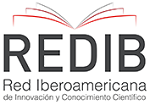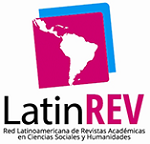Metatheory of higher education.
DOI:
https://doi.org/10.15649/2346030X.443Keywords:
Educational institutions, theory, metateoria, fundamentals.Abstract
One of the tasks of academics and intellectuals, is to question everything written, written, the discursive is not in general
acceptance; this reason, or without reason, is due to the dissatisfaction of the ideas, the concepts of the themes, the singularity of the persons
themselves and their interests in altruistic cases and in others of an egocentric and therefore selfish nature.
In this regard, a number of specialties, but not sciences, are day after day in constant diatribes in which they are faced with assumptionscriteria-theories and ideas; this is due to the almost singularity of some hypotheses that in certain circumstances are the product of isolated and
almost local events, for this reason their transcendence of the data or of the quality is almost temporary in a certain geographical space and in a
chronological time. Regarding the position of science, it needs to be revised from several points of view: (a) as a whole, (b) as a faculty and (c)
as a method. With respect, to the first as a set of accurate and unquestionable knowledge, as a faculty that the human being has to find answers
to his questions and as a method capable of dividing himself divided and divided into techniques and steps for his revision.
And what does this uncertainty support? In the continuous change of ideas, of the thoughts and inquiries that should be promoted by every
school, every current and generation of academics and intellectuals. In this regard, they will give supposed lights, definitions, theories and about
them Metateoria.
But, why Meta theories arise ?, when the uncertainty or weaknesses in the foundations of the various scientific proposals, specialties and
even the very institutions that allow development in society present gaps and weaknesses in their bases-structures and their foundations . In this
regard, anomalies, contradictions, mistakes, will always start a complete system free of contradictions, but temporary, which is a utopia is an
ideal, is almost daydreaming.
References
O. Razinkov, Diccionario de Filosofía, Cuarta Edición ed., Moscú: Progreso, 1984.
C. Torres Alcaraz, Hilbert y Gödel: dos perspectivas de la matemática, México: Libros UNAM, 2018.
Y. Martin-Lahera, «¿Teoría o metateoría? En el dominio usuario,» Ciência da Informação, vol. 33, nº 3, pp. 50-60, 2004.
F. N. Kerlinger y H. B. Lee, «Investigación del comportamiento,» McGRAW-HILL, S. F.
J. Coleman, «Metateoria: La explicación en la Ciencia Social,» Revista Colombiana de Sociología, vol. Volúmen VI, nº 2, pp. 193-218, 2001.
G. Ritzer , Teoria Sociológica Moderna, MCGRAW-HILL, 2002.
I. Mello Carvalho, El Proceso Didactico, Buenos Aires: Kapelusz, 1974.
J. S. Moncada, «La Universidad: Un Acercamiento histórico Filosófico,» Ideas y Valores: Revista Colombiana de Filosofía, vol. 57, nº 137, pp. 131-148, 2008.
E. Guevara Perez y J. Divo de Romero, «Visión Panorámica del Proceso histórico de la Educación superior,» Revista Ciencias de la Educación, vol. Volúmen 19, nº 33, pp. 119-138, 2009.
H. Horn, «Karl Jaspers y su idea de la educación y la universidad,» Perpectivas: revista trimestral de educación comparada, vol. Volúmen 23, nº 3-4, pp. 769-788, 1993.
D. Guzmán, «EL ETHOS FILOSÓFICO,» Praxis Filosófica, vol. Nueva Serie, nº 24, pp. 137-145, 2007.
Downloads
Published
How to Cite
Issue
Section
Altmetrics
Downloads
License
The journal offers open access under a Creative Commons Attibution License

This work is under license Creative Commons Attribution (CC BY 4.0).












